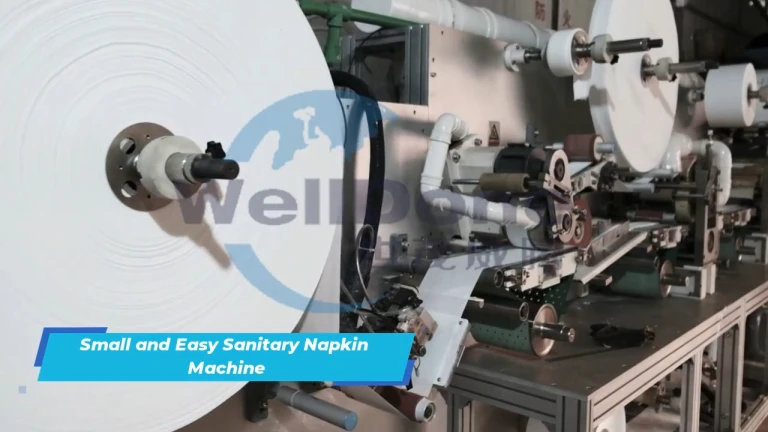Sanitary napkin machines play a crucial role in the production of feminine hygiene products. These machines automate the manufacturing process, making it efficient and cost-effective. The rise of sanitary napkin machine production has significant implications for local markets. This article explores the economic impact of this production on local economies, highlighting various aspects that contribute to its importance.
Job Creation in Local Communities
One of the most immediate economic impacts of sanitary napkins production machine production is job creation. The establishment of manufacturing facilities requires a workforce to operate the machines, manage production, and handle logistics. This influx of jobs provides employment opportunities for local residents, contributing to economic stability. As more people gain employment, local businesses also benefit from increased spending in the community.

Boosting Local Businesses
The production of sanitary napkin machines stimulates local businesses. Suppliers of raw materials, such as absorbent materials and packaging, see increased demand as manufacturers ramp up production. Local businesses that provide services, such as maintenance and repair of machinery, also benefit from this growth. This interconnectedness strengthens the local economy and fosters a sense of community.
Increased Access to Sanitary Products
Sanitary napkin machine production leads to increased access to affordable sanitary products. With local production, manufacturers can reduce transportation costs and pass savings onto consumers. This accessibility is particularly important in regions where hygiene products may have been scarce or expensive. Improved access to sanitary products positively impacts women’s health and well-being, contributing to overall community health.
Economic Empowerment of Women
The production of sanitary napkin machines can empower women economically. By creating job opportunities in manufacturing, women can gain financial independence and contribute to their households. Additionally, local production of sanitary products allows women to participate in the supply chain, from manufacturing to distribution. This empowerment fosters gender equality and enhances women’s roles in the economy.
Development of Local Industries
Sanitary napkin machine production encourages the development of local industries. As demand for sanitary products increases, manufacturers may expand their operations or diversify their product lines. This growth can lead to the establishment of related industries, such as packaging and distribution. The development of local industries creates a more resilient economy, less reliant on external suppliers.
Investment in Infrastructure
The establishment of sanitary napkin machine production facilities often requires investment in local infrastructure. Manufacturers may need to improve transportation networks, utilities, and communication systems to support their operations. This investment benefits the entire community, as improved infrastructure enhances overall accessibility and quality of life for residents.
Tax Revenue Generation
Local governments benefit from the economic impact of sanitary napkin machine production through increased tax revenues. As manufacturing facilities grow, they contribute to local taxes, which can be used to fund public services such as education, healthcare, and infrastructure development. This additional revenue allows local governments to invest in community projects that enhance residents’ quality of life.
Export Opportunities
Sanitary napkin machine production can open up export opportunities for local manufacturers. As production capabilities increase, manufacturers may find markets beyond their local communities. Exporting sanitary products can lead to increased revenue and economic growth, positioning local manufacturers as competitive players in the global market. This expansion can further stimulate the local economy.
Challenges and Considerations
While the economic impact of sanitary napkin machine production is largely positive, there are challenges to consider. Manufacturers must navigate regulatory requirements, quality control, and competition from larger companies. Additionally, ensuring sustainable practices in production is essential to minimize environmental impact. Addressing these challenges is crucial for long-term success and economic stability.

Community Engagement and Awareness
Community engagement is vital for the success of sanitary napkin machine production. Manufacturers should work closely with local communities to raise awareness about the importance of sanitary products and hygiene. Educational initiatives can help reduce stigma and promote the use of sanitary products, ultimately contributing to better health outcomes. Engaging with the community fosters trust and support for local production efforts.
Conclusion
The economic impact of sanitary napkin machine production on local markets is significant. From job creation and increased access to sanitary products to the development of local industries and infrastructure, the benefits are far-reaching. By empowering women and generating tax revenue, this production contributes to overall community well-being. As local manufacturers continue to grow, addressing challenges and engaging with the community will be essential for sustaining this positive economic impact